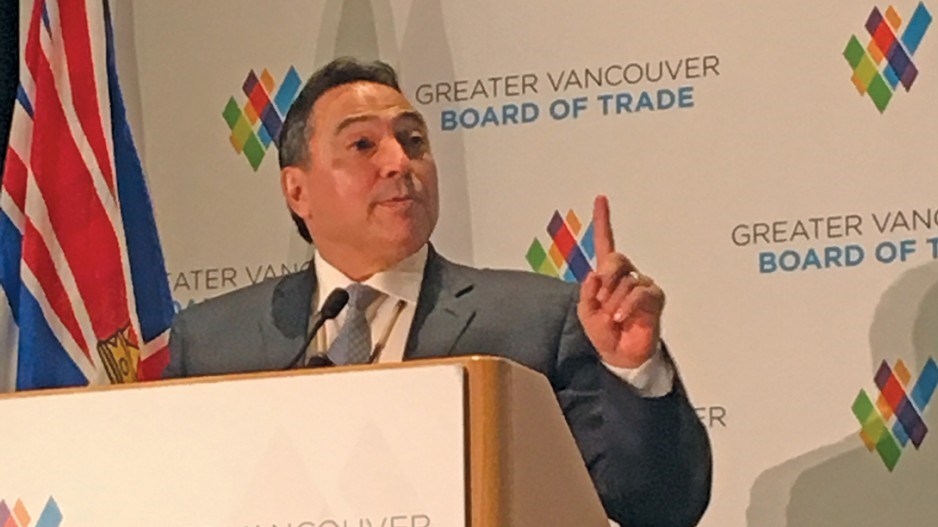In the past three federal budgets, Finance Minister Bill Morneau – who is known as the “Big Money Man” in Cree – has earmarked what Assembly of First Nations National Chief Perry Bellegarde calls “an unprecedented investment in First Nations.”
Over three years, it totals $17 billion, Bellegarde said.
That kind of spending might make fiscal conservatives wince, especially when it’s for something as nebulous as “reconciliation.” But in a recent Greater Vancouver Board of Trade address, Bellegarde urged business leaders to support the federal government’s efforts to tackle poverty and other social problems on Canada’s reserves and address reconciliation and rights and title issues.
Bellegarde pointed to indicators that suggest Canada’s First Nations live in Third World conditions in a First World country – conditions that are not good for the economy, especially considering that First Nations are a fast-growing demographic with a high unemployment rate in an era when Canada is facing serious skilled-labour shortages.
Investment in First Nations education and skills training is something that benefits everyone, he said.
“Yes, we need immigrants to come,” he said. “Yes, no question. But don’t forget this human capital pool that’s just sitting here. Build those relationships and tap into that. You’re going to have a huge return on investments when you do that.”
Some reserves in Canada do not have basic services like clean drinking water or safe housing. And, according to Statistics Canada, the unemployment rate for First Nations is 13.5%, Bellegarde said, compared with an average of 6.2% for the rest of Canada.
The average tuition for First Nations students is about $6,500 per child, he said.
“Yet in provincial school systems, it’s $12,000, $13,000 per child. In the French school systems, it’s almost $20,000 per child. That’s an example of the gap that exists. So that has to close.”
Citing a Centre for the Study of Living Standards estimate, Bellegarde said closing education and labour gaps would add $36 billion to Canada’s gross domestic product.
But addressing First Nations issues is not just a budget item.
Bellegarde said it is critical for business and industry to understand First Nations rights and title.
“We have a very important right – the right to self-determination, the right to self-government. If we start talking about self-determination, self-government, as First Nations people, ultimately it has to be linked to economic self-sufficiency.”
He pointed to a number of success stories, including in B.C., where First Nations work with business and industry to develop their own economies and generate their own revenue.
He noted the Tahltan Nation Development Corp., for example, which works with the energy and mining industries and provides consulting and equipment rental services.
“They employ 30 people on a permanent basis,” Bellegarde said. “Across Canada there are good things happening. It’s not all doom and gloom. But when you look at those First Nations, you say, ‘Well, why are they successful and everybody else isn’t?’”
He said the more successful and entrepreneurial First Nations are the ones that have built capacity and have strong leadership, access to capital, land and resources.
He urged business leaders to build relationships with First Nations and put more First Nations members on boards of directors and in senior management positions.
“We need to get more First Nations people around those senior management tables that are developing internal policies within companies and businesses that are operating on our ancestral lands. When you do that, you’ll have a better chance of finding a balance between the economy and the environment.”
Bellegarde pointed to the $40 billion LNG Canada project as an example of what can happen when industry works with First Nations to get consent and co-operation.
But he also pointed to the Trans Mountain pipeline expansion, which has been stalled – largely due to opposition by the Tsleil-Waututh Nation – as an example where First Nations may say no to a project. He suggested industry and government need to take no for an answer.
“You have to respect the rights and title holders,” he said. “The right to say yes or the right to say no, and if it’s no, then you find other alternatives.”




